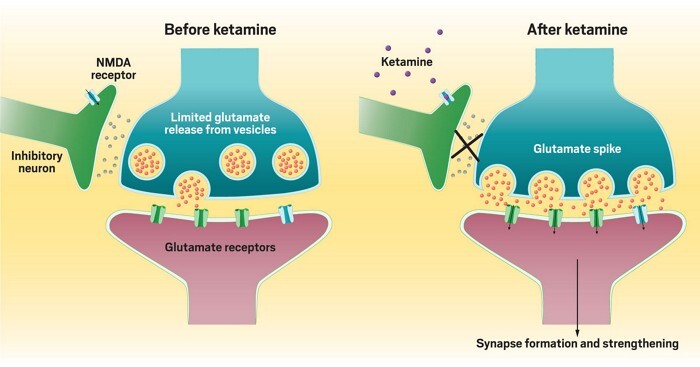Exploring the Potential of Ketamine for Anxiety Treatment : A Comprehensive Analysis
Anxiety disorders, affecting millions worldwide, can be debilitating and resistant to conventional treatments. Amidst this challenge, a novel avenue has emerged in the form of ketamine for anxiety treatment. While traditionally recognized as an anesthetic and even a recreational substance, ketamine's *potential in alleviating anxiety has sparked curiosity and research. This article delves into the concept of ketamine for anxiety, examining its mechanism of action, clinical applications, efficacy, safety considerations, ongoing research, and the future of this evolving treatment approach.

Understanding Anxiety and Treatment Gaps
Anxiety disorders encompass a range of conditions characterized by excessive worry, fear, and unease, often disrupting daily functioning and well-being. Despite various available interventions, a subset of individuals experiences limited relief from standard therapies. This treatment gap highlights the need for innovative approaches such as ketamine for anxiety to provide hope to those who have been unsuccessful with traditional methods.

Ketamine's Mechanism of Action : A Novel Approach
Ketamine for anxiety may seem paradoxical given its well-known association with anesthesia and recreational use. However, research has unveiled ketamine's complex mechanism of action, particularly its interaction with glutamate receptors. By influencing the brain's neurochemistry, ketamine can induce rapid and profound changes in mood, potentially offering a new path towards managing anxiety disorders.
Clinical Applications and Efficacy
Clinical trials investigating the use of ketamine for anxiety have demonstrated promising results. Intravenous (IV) ketamine infusion, often administered under medical supervision, has shown rapid and significant reductions in anxiety symptoms, particularly in treatment-resistant cases. The efficacy of ketamine for anxiety is notable, but it's essential to emphasize that individual responses can vary, and the long-term effects are still being studied.
Safety Considerations and Side Effects
While ketamine for anxiety shows potential, it's crucial to acknowledge the safety considerations associated with its use. Side effects, including dissociation, dizziness, and elevated blood pressure, can occur during and after ketamine administration. Medical professionals carefully monitor patients undergoing ketamine for anxiety treatment to mitigate risks and provide necessary support.

Ongoing Research and Future Implications
The landscape of ketamine for anxiety is evolving rapidly as researchers strive to better understand its effects, optimal dosing, and long-term outcomes. Investigations into different administration routes, such as intranasal sprays and oral formulations, are ongoing to expand accessibility and minimize the need for medical supervision. Additionally, research continues to explore the potential of ketamine for anxiety in combination with psychotherapy and other therapeutic modalities.
Navigating the Path Ahead
As the concept of ketamine for anxiety gains momentum, it's important to approach it with a balanced perspective. While the potential benefits are exciting, questions about sustainability, cost-effectiveness, and broader applicability remain. Individuals considering ketamine for anxiety should engage in thorough discussions with qualified healthcare providers, weighing the potential benefits against the associated risks.
In conclusion, ketamine for anxiety represents a novel and promising approach for individuals grappling with severe anxiety disorders. Its unique mechanism of action and rapid effects offer a glimmer of hope for those who have exhausted other options. However, the journey toward establishing ketamine for anxiety as a mainstream treatment is still underway, requiring further research, collaboration, and informed decision-making.